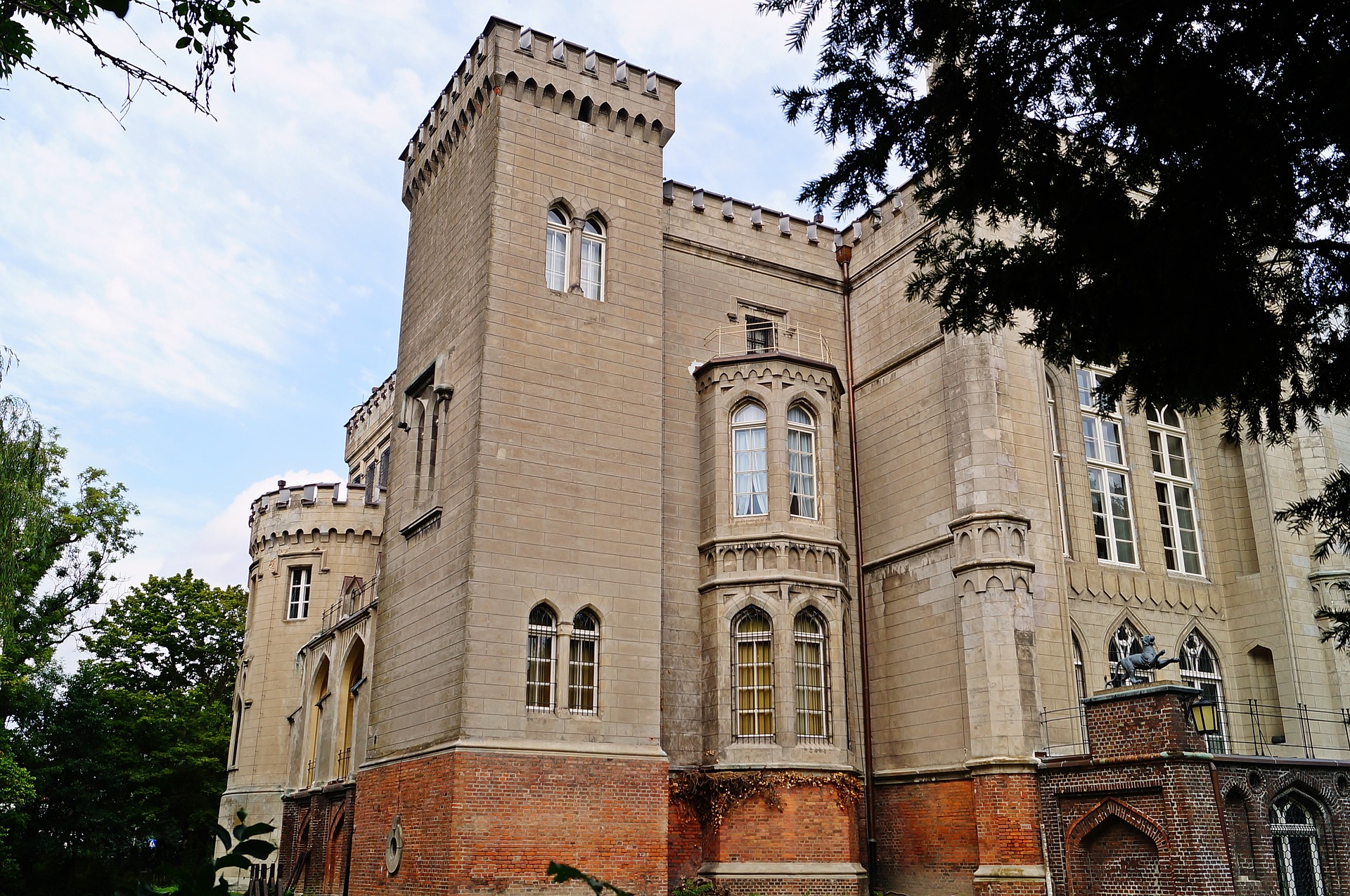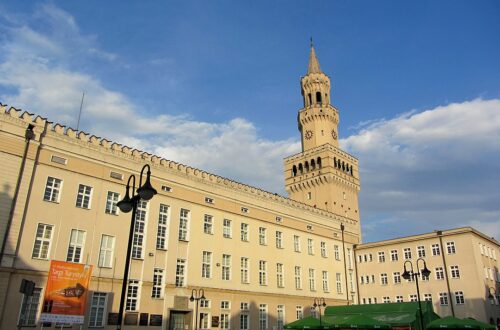15 Best Polish Books To Read in 2022
Poland is a country that has a rich culture, tradition, and history; however, many excellent writings of Polish poets went unnoticed. There are some outstanding books inspired by war, art, socialism that influenced many individuals worldwide through the power of words. Whether you’re reading for pleasure or just learning the polish language, add these books to your reading list and immerse yourself in Polish literacy.
We listed down 15 best Polish books translated to English.
1. The Witcher Series by Andrzej Sapkowski

The Witcher Saga is a series of fantasy books written by Andrzej Sapkowski. The series of novels is a continuation of the author’s stories: “The Last Wish” and “The Sword of Destiny .”
The saga is a story about the fate of the witcher, Geralt. Witchers are professional monster killers, trained in witcher schools to track down and slay various creatures. Interestingly, Andrzej Sapkowski wanted to call the saga “Blood of Elves,” but eventually, it took the name “The Witcher” and became the most famous Polish fantasy series.
The witcher has shown to be one of the most successful series on Netflix, breaking records just a week after its release, let alone games. It can be safely said that Sapkowski’s work does not differ from the novel by George R.R. Martin or J.R.R. Tolkien. The Witcher books reading order: (stories, saga).
- The Last Wish
- Sword of Destiny
- Blood of Elves
- Time of Contempt
- Baptism of Fire
- The Tower of the Swallow
- The Lady of the Lake
- Season of Storms
2. The Doll by Boleslaw Prus
Bolesław Prus was one of the leading Polish writers of the positivist era. His most outstanding work, “The Doll” is a real gem of Polish literature and a leading novel of the positivist era that will take you to old
Although the relation of Izabela Łęcka and Stanisław Wokulski is fascinating and absorbing, the book is primarily a panorama of
The doll is a tangled story and a unique confrontation full of understatements, misplaced feelings, lost illusions, and missed opportunities.
3. Solaris by Stanislaw Lem
In Solaris, Stanisław Lem takes up one of the most popular topics in fantasy literature – contact with an alien civilization, a different form of life unknown to us. Stanisław Lem described the planet in a captivating and charming way. He vividly presented interpersonal relations, characters, and mysterious areas of Solaris.
The book’s story tells about a new member of the research team, Dr. Kelvin, who arrives at the station on the planet Solaris to study the ocean covering its surface.
Soon after landing on Solaris, he notices disturbing signals, including the strange behavior of two scientists living at the research station. The protagonist suspects that they are accompanied by an alien entity difficult to identify in the research.
4. Quo Vadis by Henryk Sienkiewicz
Polish novelist, a Nobel Prize winner for lifetime achievements, Henryk Sienkiewicz, is perhaps best known internationally for his historical novels. However, he began his writing career as a journalist and travel essayist. Certainly, Quo Vadis is a historical novel, written in a masterly manner, as evidenced by its international success.
Set in Rome in Nero’s time, “Quo Vadis” tells the story of Roman tribune Marcus, who falls in love with a beautiful Christian girl, Ligia. As the lives of Vinicius and Ligia intertwine, they watch the world they know change before their eyes. While the apostle’s Peter and Paul seek to save the immoral city from ruin, Christians are brutally martyred in the Coliseum and Rome burns.
Quo Vadis has a subtext; Sienkiewicz wrote it to cheer the hearts of all Poles who struggle with an invader.
5. Ferdydurke by Witold Gombrowicz
Witold Gombrowicz was a Polish novelist and playwright whose works are characterized by in-depth psychological analysis, a sense of absurdity, paradox, anti-nationalism, and criticism of romanticism. Ferdydurke is one of the first and, at the same time, one of the most outstanding works of Witold Gombrowicz.
Ferdydurke is a bit of an adventurous novel, the protagonist of the story. Józio is actually kidnapped from one place to another. Józio falls from form to form; he is unable to escape from it. The sad conclusion resulting from the plot is that Józio remains a slave of form as we all do.
The author’s message is simple people are always pretending and playing different roles in life. The grotesque form of the novel speaks to people.
6. Collected Poems by Zbigniew Herbert
Zbigniew Herbert was a brilliant Polish poet from the City of Lviv (currently Ukraine). He is a creator of the famous poetry series “Pan Cogito,”
One of the symbols of Herbert’s work is the reinterpretation of ancient Mediterranean mythology. Gods, heroes, and people from Greek and Roman myths are present in his poems from his debut “Strings of Light” (1956) to “King of the Ants” (2001), the last book he did not complete, published posthumously.
Collected poems are the most extensive selection of Herbert’s poetry, containing the author’s work’s chronological arrangement, from the volume Struna light (1956) to Epilogue by storm (1998).
They contain scattered works (including six previously unpublished poems) and the writer’s essential self-comments.
7. Native Realm by Czeslaw Milosz
Czesław Miłosz was a poet, essayist, prose writer, and winner of the Nobel Prize in Literature in 1980. After The Second World War, Czeslaw Milosz was exiled for many years from his home country of Poland. In Native Realm, he evokes that homeland and his years away from it, how it nurtured him and how its divisions and destruction shaped a generation.
Exploring such diverse memories as a Soviet officer drinking tea with his little finger sticking out, or two Chinese girls passing, laughing, by a New York subway station, Milosz uses these to both ‘bring Europe closer to the Europeans’ and to capture the formative moments in his life, from his Catholic education to his time in Paris, all with his distinctive honesty, elegance, and self-awareness.
8. Heart of Darkness by Joseph Conrad
Joseph Conrad (1857-1924) was an English writer of Polish origin, original name: Teodor Józef Konrad Korzeniowski. Conrad was valued for his prose’s richness and for depicting dangerous life at sea and exotic places during his lifetime. Heart of Darkness, one of the greatest works by Joseph Conrad, tells about a narrated voyage to Congo in Africa.
The narrator of the novel is Charles Marlow – he tells his story as one of the few heroes on the ship. He recalls his trip to Congo, which purpose was to transport ivory, a valuable commercial commodity, and bring information about Kurtz – one of the best traders of that region, who decided to leave Europe to live in Africa.
Outlining a fragment of the nineteenth-century history of British colonial conquests, the author clearly shows how its pages were written with the blood, suffering, and death of hundreds of thousands of innocents. The very image created in the novel points towards the heart of darkness inside every human being.
9. The Assassin From the Apricot City by Szablowski
Witold Szabłowski studied political science in Istanbul and traveled all over Turkey as an intern on CNN Türk. He got to know Turkey very thoroughly in terms of political, cultural, economic, and social. In the book, the cross-section of topics is really impressive: Witold Szabłowski talks to truck drivers, prostitutes, professors – anyone who can help him understand the different aspects of contemporary Turkey.
He listens to the shocking stories of women hunted for damaging the family’s reputation, stories about the most famous Turkish poet with a familiar name Borzęcki, the account of the family of an apricot killer – Mehmet Ali Ağca – who attacked John Paul II. These all colorful, hypnotic stories reveal a picture of a nation torn by contradictions – hesitating between tradition and modernity.
10. Selected Poems of Tadeusz Rozewicz
Tadeusz Rozewicz is one of the most outstanding characters in the generation of writers whose work was indelibly marked by Poland’s traumatic and tragic wartime experience. Tadeusz Różewicz made his debut in the interwar period, but his debut went unnoticed due to the outbreak of the war.
As a Home Army soldier, he wrote war poems with a mood similar to the poetry of Baczyński or Gajcy. Catastrophism and expressionism were characteristic of Różewicz’s poetry from that period. The tragedy related to war memories and the experience of mass death was present throughout the poet’s work. Różewicz is also considered a continuator of the tradition of the Krakow Avant-garde.
New Poems is a collection of Rózewicz’s three latest volumes in their entirety: exit (1998), the professor’s knife (2001), and gray zone (2002).
11. House of Day, House of Night by Olga Tokarczuk
Olga Tokarczuk is one of the most famous Polish contemporary writers, a winner of the literature’s Nobel Prize. She creates social novels, scripts, and poetry. House of Day, House of Night, is one of the most famous novels by Olga Tokarczuk, nominated for the prestigious international IMPAC award and the NIKE Literary Award.
Tokarczuk tells the story of a woman who moves into a house in a small town called Pietno. There, she begins to get to know the new neighborhood and the inhabitants’ stories, from whom the image of this place emerges. Day house, night house,” presents a microcosm in which we can find ourselves, to which we can get used to or oppose it.
With the help of Olga Tokarczuk, you will be able to understand that the limits of life, thinking, and acting are only in our heads.
12. Street of Crocodiles by Bruno Schulz
Bruno Schulz was a Polish writer, painter, graphic artist, and illustrator of Jewish origin. Schulz’s prose belongs to the modernist-expressionist trend, referring to myths, symbols, and the subconscious, using grotesque and irony. In the book, through the author’s memories, we move to the world of modern civilization, commerce, the kingdom of trash and kitsch, where the environment looks like it is made of “papier-mache” and people resemble mannequins.
The story “Street of Crocodiles” shows, in a symbolic way, a catastrophic vision of a degenerate and terrifying reality. He presented a vision of reality that terrified him – a world broken from the start, people degenerated into objects.
13. The Wedding by Stanislaw Wyspianski
Stanisław Wyspiański was a playwright, poet, painter, graphic artist, and architect called the fourth Polish bard and a leading representative of Young Poland. The Wedding” by Stanisław Wyspiański is a symbolic national master-drama that presents the causes of national liberation and powerlessness.
In the realistic sphere, the book refers to the wedding celebrations of Lucjan Rydel, a poet from Krakow, with Jadwiga Mikołajczyk, a peasant girl from the rural village which took place in the village of Bronowice, in the manor house belonging to Włodzimierz Tetmajerwa. Wypianski has long been recognized as an outstanding dramatist, whose influence on Polish theatre is second to none.
14.The Peasants by Wladyslaw Reymont
Władysław Reymont was a Polish novelist and the laureate of the Nobel Prize in Literature. His most recognized work is the award-winning four-volume novel The Peasants. A novel by Władysław Reymont, showing the life of a peasant over the course of four seasons.
The novel’s framework is created by the rhythm of nature combined with the ritual-liturgical rhythm, related both to the Catholic calendar and the calendar of nature (the action of the piece covers ten months – it begins at the end of September and ends at the end of July). Against this background, the fate of the Boryn family and the young girl Jagna are played out.
The fate of the wealthy host – Maciej Boryna and his family, and the fate of Jagna – a woman different from everyone and incomprehensible to others – are in the center of attention.
The novel is a testimony to the rural culture, symbolism, and rituals that constitute the novel’s value. The book is called the peasant epic because it is a story about a rural community, about the ethics of a group that will sacrifice everything for the land’s sake.
15. Shielding the Flame by Hanna Krall
Hanna Krall is a polish writer and reporter, author of a famous interview with Marek Edelman,” Shielding by Flame.” The book is a literary documentary about race with death in the
The book is engaging and forces people to ask themselves some crucial questions. We should never forget those tragic events, and we must do everything possible to prevent history from repeating itself.


















